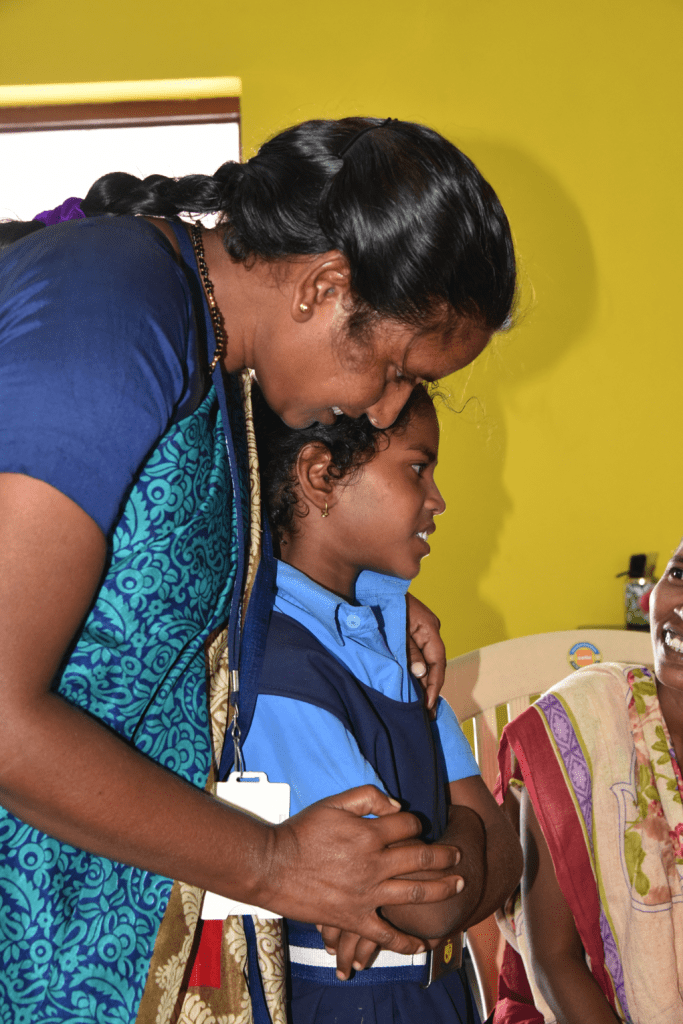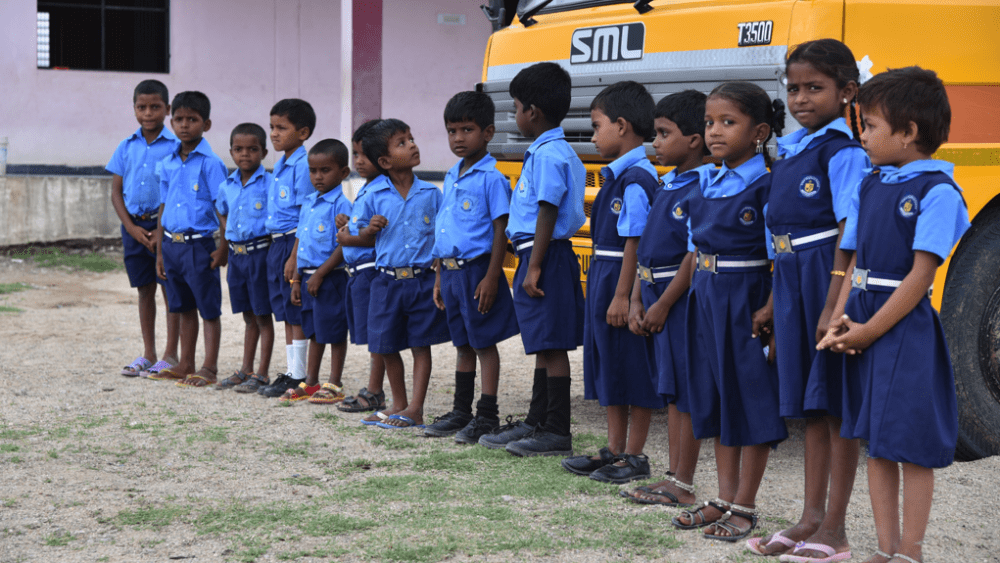What hope for children of girls dedicated to a goddess?
Girls are young as five are sold into sexual slavery
Sexual slavery comes in many forms.
The practice of “jogini”, or temple prostitution, is one manifestation of ritualised sexual slavery. High-caste men in regions of rural southern India impose jogini on girls and women from the Dalit caste. Dalit means “crushed or broken” and is the current name for an “untouchable” under the Indian caste system.
Joginis live lives of desperate fear, poverty, illiteracy and illness.
But even a term as unappealing as “temple prostitution” understates the pernicious nature of this enslavement. Little girls between the age of five and 12 are dedicated to the goddess Yellamma, often at the instigation of their poverty-stricken parents. Until puberty they will not usually realise what is ahead of them. At puberty, they are sold to the highest bidder for the night and thereafter they are available sexually to any man, at any time, anywhere and for no payment.
As well as robbing girls of their dignity, the practice of jogini is damaging emotionally, physically and spiritually. Joginis live lives of desperate fear, poverty, illiteracy and illness. Frequently depressed, they often seek solace in addictive substances. They are not permitted to marry, nor to relinquish their role. It is their fate, their destiny, to be the lowest of the low: a woman, a Dalit, a Jogini.
So what hope is there for a Jogini’s child?
The child of a Jogini is frequently shunned and marginalised in their community and denied basic human rights.
Joginis may have several children over their lifetime. These children officially have no father and, until recent successful advocacy, this meant they had no surname or registration papers and were denied access to a government school.
In a traditional patriarchal society, the child of a Jogini is frequently shunned and marginalised in their community and denied basic human rights. Boys are harshly bullied by teachers and peers for being the sons of the village prostitute and, if they can get into a school, usually drop out at a young age to do menial labour. It is no easier for a girl, who, with no alternative, will most likely follow in her mother’s footsteps.

A community health worker and former patient DFN
Jogini children are at high risk of health problems and abuse, lacking safety in their own homes and villages. They may develop trauma and mental health issues through direct exposure to the sexual abuse of their mothers. They are born into grinding poverty.
Since 1988, the dedication of girls as Joginis has been illegal across India, but it takes more than passing a law to change a social system and the practice continues. It is estimated that there are as many as 80,000 Jogini women in India and many, many affected children for whom the outlook is grim.
The good news is that there is hope for a Jogini woman and her child.
Dignity Freedom Network Australia (DFN), through its partner organisation, Good Shepherd Ministries, has an ambitious programme to end the practice of Jogini in the next decade. The multifaceted project includes the rescue and rehabilitation of Jogini women and girls, prevention of dedications, advocacy for the legal rights and entitlements of the women and their children, adult education and livelihood programmes, and the provision of English medium school education for the children.
DFN’s community health workers are active in more than 200 villages. As well as seeking to prevent dedications, they provide counselling and antenatal care, advice on breastfeeding and nutrition as well as immunisation and growth monitoring of young children.
Health teams from Good Shepherd Ministries – an arm of the Anglican Church dedicated to ministering to outcast and low-caste Indians – run monthly medical clinics in remote villages, with the assistance of the government and medical professionals.
They will grow up knowing that all people are made in God’s image and valuable in his sight.
The aim is to extend into 300 villages in 2018, and to build a new larger shelter home for rescued women and children, a permanent medical clinic and more English medium schools.
Excitingly, last year, DFN was able to buy two bright-yellow school buses at a cost of about $100,000. Children from Jogini families are being driven to one of DFN’s schools located a distance from their village, where they are not recognised as children of Joginis. They receive kindness and care from teachers and school health workers, supplementary nutrition and an English medium education with a biblical worldview of equality and love. They will grow up knowing that all people are made in God’s image and valuable in his sight.
You too can be a part of transforming lives for so many women and children and ending a terrible system of sexual abuse.
These are just some of the ways:
You can partner with DFN by sponsoring a Jogini child for $60 a month plus a one-off payment of $150 for medical assessment and tutoring costs. You can support a community health worker for $125 a month.
Alternatively, you can make a donation towards building the new shelter home, the medical clinic or a new school.
Please visit dfn.org.au or contact DFN on 1800 949774. When you visit our website why not sign up to receive our prayer updates and like us on Facebook?
“Defend the weak and the fatherless; uphold the cause of the poor and the oppressed.” Psalm 82:3
John Loxton is NSW State Representative of Dignity Freedom Network Australia
Email This Story
Why not send this to a friend?


